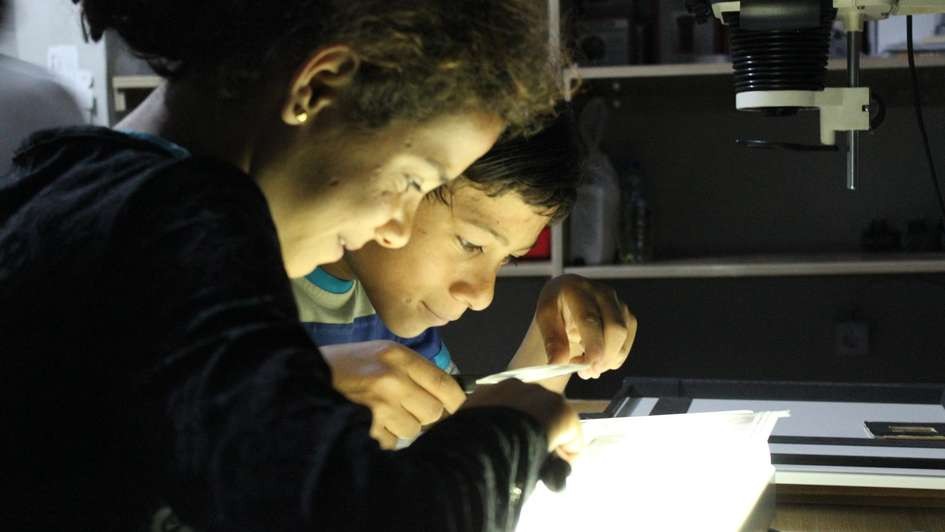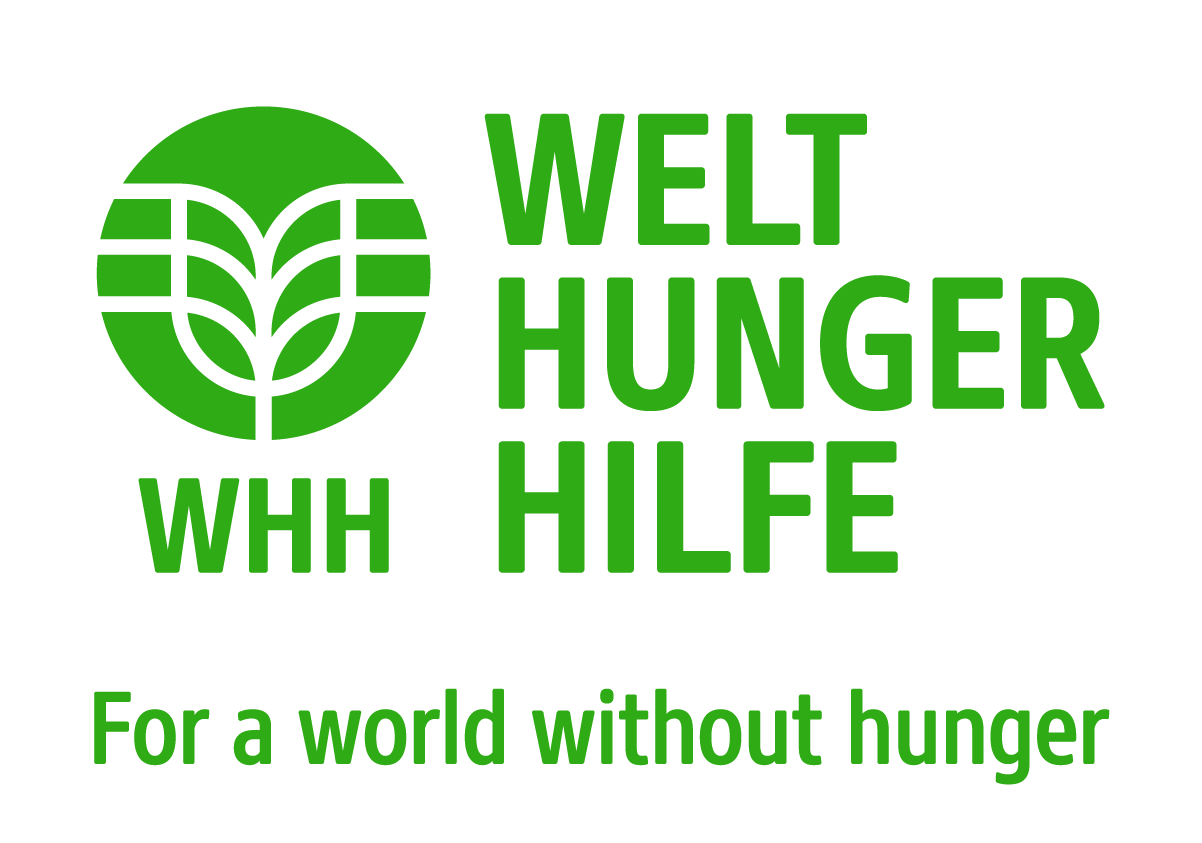Developing Photos and Friendships

Juan develops his photos in the darkroom. The "Children Photo Club" in Mardin helps to improve the social interaction between Turkish and Syrian children. © Welthungerhilfe
Many Syrian families who fled the war in their home country and came to Turkey lead an isolated life. A Welthungerhilfe project in Mardin, Southeastern Turkey promotes the interaction between Syrian refugees and the Turkish host community. A photo club brings Syrian and Turkish children together.
Ibrahim is a quiet and serious eleven-year-old boy who hardly ever smiles. His brother Juan is a year older and one can at best guess the cheerful nature behind his timidity. Ibrahim and Juan are from Syria. Together with their family, they escaped the fighting in their home town Aleppo and came to Turkey. Now, they live in a small and rundown shack with their mother Fatme. The mother and her sons collect plastic bottles and canisters and sell them for a couple of euros per month. In addition to that, both boys work on construction sites – very hard work for little money. Their combined income is hardly enough to survive on.

A motif fraught with symbolism: childhood against a backdrop of bleakness. © Ziyad
Ever since Ibrahim and Juan started participating in Welthungerhilfe’s photo project, their spirits have visibly lifted. At the “Children Photo Club”, they can be children again. Together with other Syrian and Turkish boys and girls, the brothers study how to take photos with an analogue camera and how to develop the pictures in the darkroom. “At first, Ibrahim showed aggressive behaviour, but when we started listening to music and danced while we were developing the photos, he became more comfortable. The children soon realised that this was not only about learning about photography, but mostly about having fun together,” recounts photographer and teacher Emel Ernalbant.
Studying Helps To Feel A Little More Light-Hearted
In the first photo classes, the children learn about composition, symmetry and lighting. They then receive cameras and become photographers themselves. In the age of digital photography, it is a challenge for them to take a limited number of photos only with one analogue film. They think twice about what to photograph and discuss their ideas in the group and with Emel. In the last and usually most challenging step, they develop their own photos in the darkroom. The process takes a while, it involves all senses and requires patience. “I love the darkroom. It’s a magical place. At first, I was afraid of the chemicals that we develop the photos in, but I really wanted to learn how to do it,” says Juan. “When they gave me a camera, I went out and started looking for the best shots right away.”

Juan takes pictures of his brother and a friend at their ‘home’ where neither wallpaper nor beds exist. © Suar
On most days, Ibrahim and Juan go to the photo club straight after work. “It’s really sad to see them like that. They arrive here as hard-working men – then they turn back into children who just want to learn and play,” Emel says. Juan decided to take pictures of the other child labourers on the construction sites where he works, but most of them did not want to be photographed and his boss did not allow it either. So he started photographing his younger brother and his friends. Most of them share a similar fate. They are Syrian and fled to Turkey to escape the war in their home country. Their parents often cannot find jobs and do not have a regular income. Many children work to support their families.

The young participants appreciate Emel Ernalbant’s advice. The teacher is a professional photographer. © Welthungerhilfe
The photo club is a safe space for them where they get to be children again and interact with others. Syrian and Turkish children come together and unexpected friendships develop. “I found many Syrian friends here,” says 13-year-old Xunaf Ahmed, who is Turkish. “We used to just say hello to each other in the streets, or my mum would occasionally help out Syrian neighbours. But now we’re real friends,” she continues. Her four Syrian friends Sevin, Fatma, Hewa and Raperin smile in agreement.
Author Stephanie Binder
About the Project
The “Children Photo Club” is part of a Welthungerhilfe (WHH) project funded by the German government through its Association for International Cooperation (GIZ). The project provides integrated social services for refugees and local communities through community centre structures managed by Turkish partner organisations and Welthungerhilfe (WHH). The objective is to ease tensions, improve integration and strengthen social cohesion between Syrian and Turkish communities through community centres in Istanbul (managed by the Sultanbeyli Association for Solidarity with Refugees and Asylum Seekers (RASAS), Kızıltepe (Kiziltepe Leader Women Association (KWLA) and Mardin (Welthungerhilfe (WHH). All centres are open to both Syrian and Turkish people as well as non-Syrian refugees and offer a wide range of services aimed at helping women, men, and children, to adjust, adapt and personally advance in their lives in Turkey. The long-term focus of the centres is to bolster the resilience of vulnerable refugees and host community members by strengthening their ability to deal with daily life challenges.
